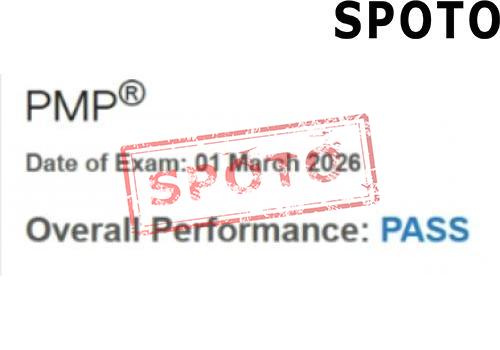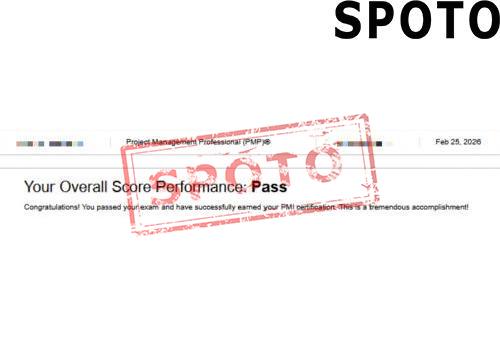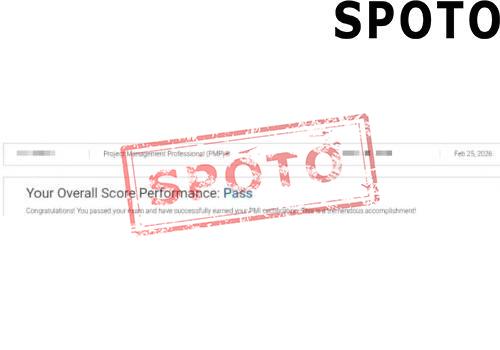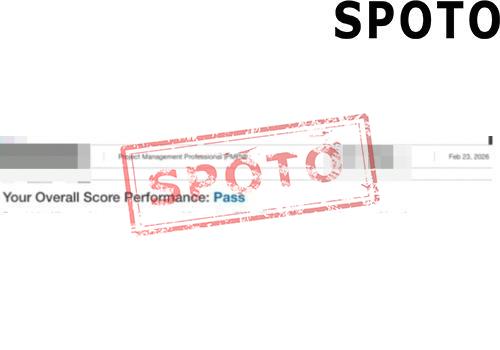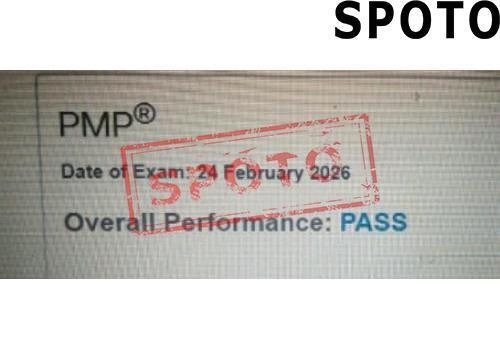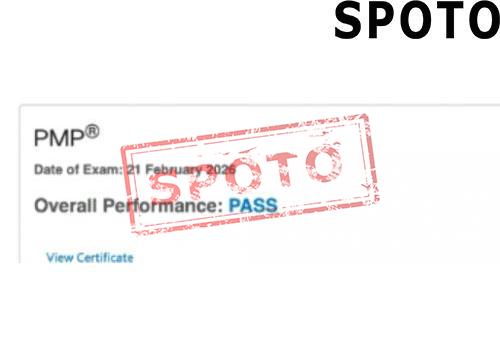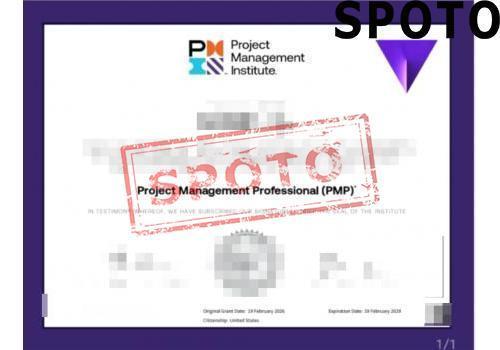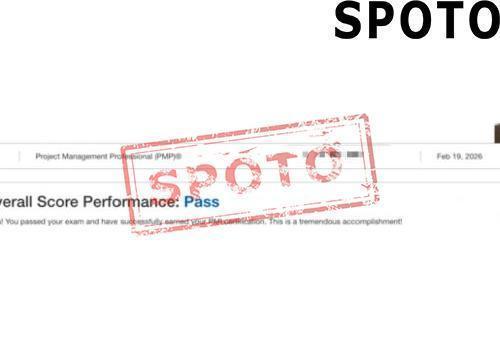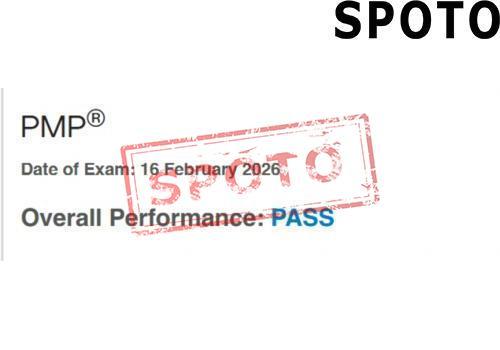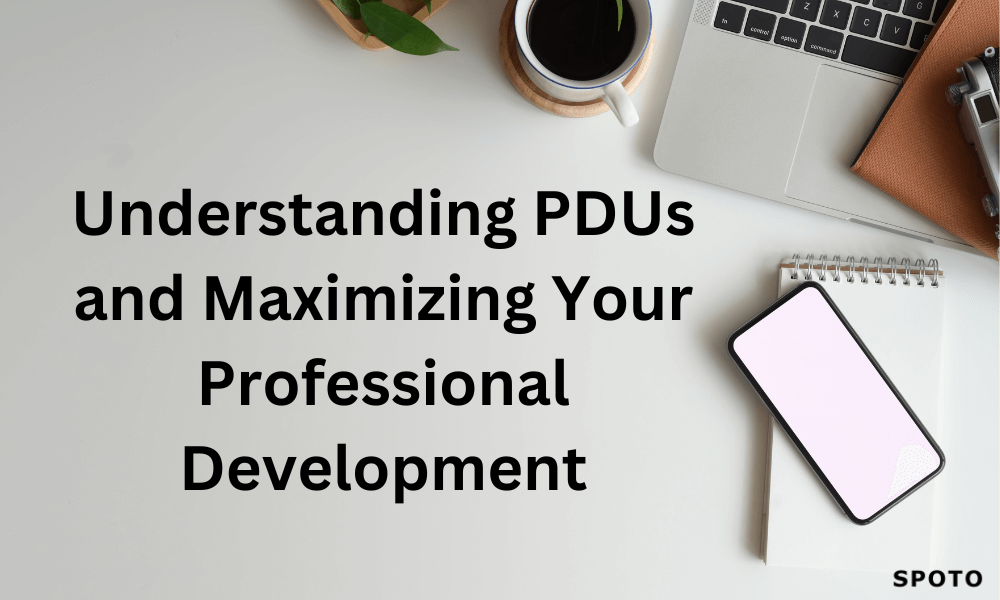
Table of Contents
Introduction
The path of maintaining one's status as a Project Management Professional (PMP) is paved with the continuous acquisition of Professional Development Units (PDUs), an indispensable element for renewal. This commitment not only underscores the importance of staying abreast with the evolving dynamics of project management but also highlights the practitioner's dedication to their professional growth. Embarking on this journey, one navigates through the intricacies of the PMP renewal process, a testament to the enduring validity of the certification and its significance in the global marketplace.
Understanding the process of PMP certification renewal involves acknowledging the value it brings in solidifying one’s standing in the field of project management. It's a systematic cycle designed to foster the ongoing professional development of certified individuals, ensuring that their skills remain sharp and relevant. Through this lens, the essence of PDUs emerges, serving as a currency of professional advancement and a beacon guiding project managers towards continuous improvement and recognition.
PMP Certification Renewal Requirements
In the world of project management, maintaining the currency of your qualifications is paramount. Let us delve into the details surrounding Project Management Professional (PMP) certification renewal requirements.
A. Explaining the 3-year Renewal Cycle
To retain the PMP status, one is required to follow a three-year renewal cycle. This cycle was instituted with the aim of ensuring that the certified professionals update their competence in harmony with trends and evolution of the industry. It is essentially an exercise that assures current relevance and up-to-date knowledge of the PMP professionals. The countdown for the cycle begins from the day you pass your PMP examination. Should the cycle expire without successful renewal, your accreditation could be suspended.
B. Minimum number of required PDUs for Renewal
In order to ensure consistent growth and development in the area of project management, PMP professionals must attain a minimum of 60 Professional Development Units (PDUs) during each three-year cycle. The PDU system has been put in place to validate the ongoing professional efforts, learning, and skills enhancement that a certified project management professional undertakes.
C. Distribution of PDUs across different Categories
-
The attainment of PDUs is not haphazard, as it has known categories in which the PDUs are distributed. The categorization was designed by PMI to ensure that project managers gain a comprehensive development spanning across diverse areas. The following categories are the basis upon which these distribution of PDUs are balanced:
-
1. Technical: This category requires the acquisition of at least 8 PDUs, improving on your technical project management skills.
-
2. Leadership: This category also requires a minimum of 8 PDUs, bolstering your leadership capacity as a project manager.
-
3. Strategic and Business: The last category demands a minimum of 8 PDUs, strengthening your strategic and business management acumen.
It is important to also note that there is no maximum limit to the PDUs that can be earned in any of the categories. Further education and professional contribution can lead to more PDUs. Hence, navigating this process consciously will not only ensure your certification remains valid but also contribute to your growth as a professional.
Understanding PDUs
Professional Development Units (PDUs) stand at the core of the PMP renewal journey, serving as the currency of your professional growth. These units are meticulously designed to ensure that certified professionals remain abreast of the evolving trends and practices within project management. The essence of PDUs is to cultivate a culture of continuous improvement, enabling professionals to enhance their skill sets and maintain the relevance of their PMP certification in an ever-changing business landscape.
Definition and purpose of PDUs
PDUs are the measurable units of professional development activities. They symbolize your commitment to professional excellence and continuous learning. Engaging in activities that earn PDUs ensures that you remain competent and proficient as a project management professional. This endeavor not only enriches your professional capabilities but also solidifies your standing in the global network of PMP credential holders.
Different types of PDUs and their significance
PDUs are categorized into two main types: Education and Giving Back to the Profession. Education PDUs are obtained through learning activities related to project management, which can further be subdivided into areas like technical project management, leadership, and strategic and business management. On the other hand, Giving Back PDUs are earned by contributing to the profession, such as through volunteering, creating knowledge resources, or working as a professional in project management. Each category plays a pivotal role in the holistic development of a PMP credential holder, ensuring a balanced approach to professional advancement.
How to earn PDUs
Earning PDUs can be approached through various avenues. Educational activities such as attending workshops, webinars, or formal courses related to project management can significantly contribute to your PDU tally. Additionally, sharing knowledge, volunteering, and working professionally within the realm of project management are viable ways to accumulate Giving Back PDUs. This multifaceted approach not only broadens your professional horizon but also enhances your contribution to the project management community.
Earning PDUs: Category-wise Breakdown
A. Technical Project Management
In the realm of Technical Project Management, the emphasis is on refining the application of project management principles directly relating to the project's domain. A prime opportunity to earn PDUs in this category is through the continual updating and honing of your skills in project scheduling, risk management, and cost planning. This can be achieved via formal learning experiences, self-learning, and online assessments.
Additionally, sharing your expertise by conducting training or workshops on these technical aspects can also qualify as valid activities for PDU accumulation. It's a win-win situation as you reinforce your knowledge while providing value to others.
B. Leadership
Leadership is essential in any project management situation. Acquiring PDUs in this category can be achieved through activities that augment your leadership skills, such as communication, team building and influencing. Participating in leadership-focused training programs or presenting on the subject at seminars are viable strategies.
Moreover, mentoring or coaching others is not only a fulsome demonstration of leadership but is also identified as a worthy practice for PDU earning, epitomizing the synergy of personal growth and professional development.
C. Strategic and Business Management
Akin to a strategic planner, a project manager should have a strong grasp of business-oriented skills. To accrue PDUs under the Strategic and Business Management category, focus on activities that improve your knowledge in market conditions, strategic planning, and business innovation. These can include related coursework, webinars or even authoring relevant publications.
Additionally, being an active part of strategic business meetings or taking part in initiatives that drive organizational success also contribute towards your PDU count. This underlines the importance of having your finger on the pulse of business strategy and management to maximize your professional development.
Maximizing Your Professional Development
In an ever-evolving professional landscape, Project Management Professionals (PMPs) are perpetually in pursuit of methodologies to amass Professional Development Units (PDUs) with both efficacy and agility. The journey towards PMP renewal, far from being a mere procedural formality, presents an invaluable opportunity to not only meet requisite benchmarks but to also significantly enhance one's skill set and industry relevance.
A. Tips and Techniques for Earning PDUs Efficiently
Embarking on the PDU acquisition trail, individuals should aim to adopt strategies that synergize with their professional aspirations and schedules. Diversification in learning methodologies—ranging from formal education to self-directed learning—can facilitate a more comprehensive understanding of both emerging trends and foundational concepts in project management. Emphasizing practical applications of knowledge, such as participating in project simulations or case study discussions, not only contributes to the PDU tally but also to real-world problem-solving abilities.
B. Recommendations for Selecting Relevant Professional Development Activities
- Align Activities with Career Goals: Select PDUs that resonate with your long-term professional objectives, ensuring that each activity contributes towards your growth trajectory.
- Seek Out Leadership and Strategic Learning Opportunities: These competencies are pivotal in navigating the complexities of project management and can significantly elevate your professional stature.
- Consider the Balance of PDUs: Ensure a balanced distribution of PDUs across the three prescribed categories—Technical Project Management, Leadership, and Strategic and Business Management—to foster a well-rounded expertise.
C. Utilizing Online Resources and Webinars for PDUs
In the digital age, online platforms offer an unparalleled convenience in acquiring PDUs. Webinars, virtual workshops, and e-learning courses not only provide flexibility in terms of timing and location but also offer access to a global repository of knowledge. These virtual avenues are particularly effective for delving into niche subjects within project management or for gaining insights from leading practitioners across the globe. Furthermore, many of these online resources come with the added advantage of community discussions, enabling a richer, more interactive learning experience.
Reporting and Verifying PDUs
Embarking on the journey of PMP certification renewal, professionals find themselves navigating the nuances of the PDU reporting and verification process. This segment is designed to illuminate the path for maintaining and showcasing continuous professional development.
A. Understanding the PDU reporting process
Commencing with the PDU reporting process, individuals must utilize the PMI’s Continuing Certification Requirements (CCR) system. This digital platform serves as the conduit through which professionals articulate their engagement in various learning activities. Following participation in eligible events or completion of qualifying learning activities, certificate holders are responsible for logging each PDU within the CCR system. This process entails a detailed submission of the activity’s nature, the number of PDUs earned, and the specific category under which each PDU falls. It is imperative to recognize that this submission should be undertaken promptly post-completion of activities to ensure accurate tracking of one’s professional growth journey.
B. Importance of maintaining accurate records and documentation
The importance of meticulous record-keeping cannot be overstated in the context of PDU reporting. Retaining detailed records and documentation of all professional development activities not only facilitates a smooth renewal process but also prepares individuals for potential audits. The PMI reserves the right to review a sample of applications, requiring selected professionals to substantiate their reported PDUs with concrete evidence. Such documentation may encompass certificates of completion, signed attendance sheets, or other verifiable records that corroborate participation. Therefore, adopting a disciplined approach to maintaining an organized dossier of all professional development undertakings is essential for affirming one’s commitment to lifelong learning and sustaining the esteemed PMP credential.
Conclusion
In encapsulating this discourse, it is evident that the potency of PMP renewal cannot be underestimated in any professional setting. It serves as a vessel that promotes continuous growth and fortifies one's foothold in the project management arena. Earning Professional Development Units (PDUs) and understanding their distribution across different facets of project management are key aspects of this process.
The essence of PDUs, their diverse types and significance, as well as processes to accrue them effectively have been profoundly examined. In specific, the technical, leadership and strategic project management components play an instrumental role. With the appropriate balance of these elements, PMP holders are well-equipped to navigate the complexities of their respective fields, thereby discounting the prospect of becoming obsolete or outmoded.
Emphasis was also laid on various techniques to optimize professional development, including selecting pertinent professional development activities and utilizing online resources. Moreover, the importance of PDU reporting and maintaining steadfast records reaffirms that this journey requires comprehensive planning, dedication, and meticulousness.
Renewing your PMP certification is not merely a requisite to validate your accreditation, but a reflective testament of your commitment to transcend peripheral limitations and constantly amplify your professional prowess. In the heart of project management, paramount performances often emanate from those who take distinction in learning, growing, and evolving continually.
So, as you stand on the brink of recertification, be proactive, seize this opportunity to multiply your insights and knowledge. Not only will this enhance your capabilities but also pave your way to higher tiers of success. Let’s get started on this rewarding journey to maintain our PMP certification and reaffirm our commitment to personal growth!
